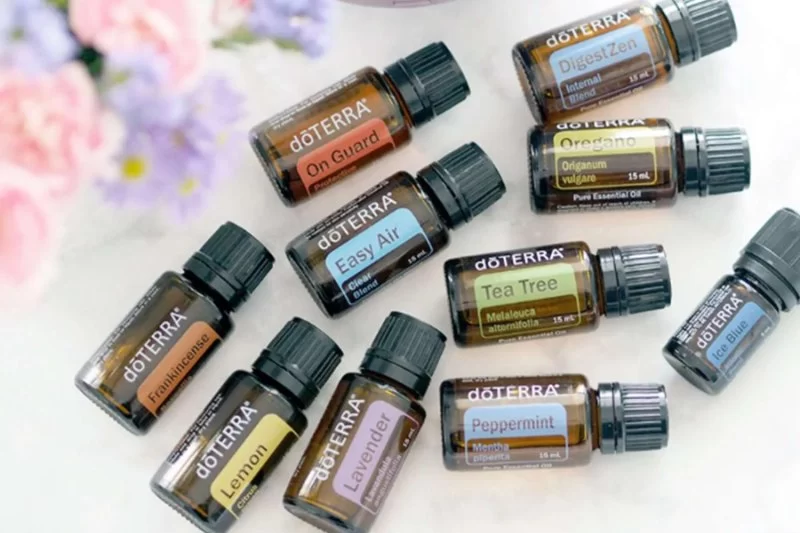- what-are-essential-oils-and-how-do-they-work
- how-to-choose-quality-essential-oils-for-beginners
- safe-ways-to-use-essential-oils-daily
- common-mistakes-to-avoid-when-using-essential-oils
- real-stories-and-experiences-from-oil-beginners
- find-your-first-essential-oils-at-scent-snob
1. What Are Essential Oils and How Do They Work?
Essential oils are highly concentrated plant extracts known for their therapeutic properties. Whether derived from the petals of a rose or the bark of a cedar tree, these oils capture the plant’s “essence”—its fragrance and healing compounds. But essential oils are more than just a trend; they’ve been used in traditional medicine, skincare, and aromatherapy for centuries.
Their molecules are tiny enough to enter the body through inhalation or skin absorption, triggering emotional or physiological responses. For instance, inhaling lavender oil may activate calming neurotransmitters in the brain, while tea tree oil applied topically can help manage acne due to its antibacterial properties.
2. How to Choose Quality Essential Oils for Beginners
2.1 Look for 100% Pure and Undiluted Labels
Many brands dilute oils with synthetic ingredients or carrier oils without disclosing it. Beginners should always choose oils labeled “100% pure” and “therapeutic grade,” although note that the term “therapeutic” is not officially regulated in the U.S.
2.2 Understand the Latin Name on the Bottle
For example, lavender can be listed as Lavandula angustifolia or Lavandula stoechas—two different species with different effects. Knowing the botanical name ensures you’re getting the oil you need.
2.3 Packaging and Price Matter
High-quality essential oils are stored in dark amber or cobalt glass bottles to prevent degradation from light. Also, they’re not cheap. If a jasmine oil is surprisingly affordable, it’s probably not real jasmine.
2.4 Where to Start
Popular starter oils include lavender, peppermint, lemon, eucalyptus, and frankincense. These are versatile and safe for most uses, making them great for experimentation.
3. Safe Ways to Use Essential Oils Daily
3.1 Aromatherapy: The Power of Inhalation
Diffusing oils into the air is one of the safest and most effective methods. Add a few drops to a diffuser with water and enjoy the mood-enhancing or focus-boosting effects. Lemon oil in the morning, lavender before bed—it’s about creating the atmosphere you want to feel.
3.2 Topical Use: Blending with a Carrier Oil
Essential oils should almost never be applied directly to the skin. Dilute them with carrier oils like coconut, jojoba, or sweet almond oil. A 2% dilution (about 12 drops per ounce of carrier) is generally safe for adults. Apply to temples, wrists, or sore muscles.
3.3 Bathing and Massage
Adding oils to a bath can be soothing, but never drop them directly into the water. Mix them with a neutral carrier like milk, Epsom salt, or unscented bubble bath first. For massages, blends like eucalyptus and rosemary can relieve tension and fatigue.
3.4 Household Use
Essential oils also shine in DIY cleaning products. A mix of lemon, tea tree, and vinegar makes a powerful natural surface cleaner with zero chemicals.
4. Common Mistakes to Avoid When Using Essential Oils
4.1 Overuse and Sensitization
More isn't always better. Overuse can lead to skin irritation, allergic reactions, or long-term sensitivity. Respect potency and always perform a patch test before applying new oils.
4.2 Ingesting Without Proper Guidance
Unless under supervision from a certified aromatherapist or healthcare provider, avoid ingesting essential oils. Just because it’s natural doesn’t mean it’s safe internally.
4.3 Unsafe Use Around Children and Pets
Some oils are dangerous to children and pets. For example, eucalyptus and peppermint can be harmful to infants. Always research or consult a professional before use in family environments.
5. Real Stories and Experiences from Oil Beginners
Jenna from Austin started using essential oils during lockdown and swears by lavender to manage her anxiety. “At first, I didn’t know what I was doing—just poured it in a candle warmer. But once I got a proper diffuser and learned about dilutions, it made a huge difference.”
Meanwhile, Mike, a dad of two in Seattle, discovered oils when trying to reduce his household’s chemical exposure. “I started with a lemon and rosemary blend for cleaning. Now, my wife uses frankincense for her skin, and we diffuse cedarwood at night for better sleep.”
These aren’t influencers—they’re just regular people finding balance and wellness through scent, one drop at a time.
6. Find Your First Essential Oils at Scent Snob
Whether you’re seeking stress relief, better sleep, or a chemical-free lifestyle, finding the right oils makes all the difference. At Scent Snob, we offer curated essential oils that are tested, pure, and perfect for beginners who care about quality and safety.
You’ll find guides, blends, accessories, and expert recommendations to help you get started with confidence. If you’re new to essential oils, Scent Snob isn’t just a store—it’s your scented support system.


0 comments